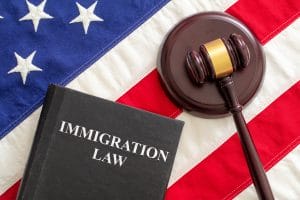 New gun control measures are being implemented by executive order. Know what they mean for you.
New gun control measures are being implemented by executive order. Know what they mean for you.
By Logan Elia | Rose Law Group attorney
President Obama announced this week that new gun control measures are being implemented by executive order. The measures restrict the ability of gun owners to freely engage in private party sales of firearms and impose additional requirements on people seeking to own weapons regulated by the National Firearms Act.
The new regulations related to the in person, private party sale of firearms take effect immediately. In accordance with President Obama’s directive, the Bureau of Alcohol, Tobacco, Firearms and Explosives (ATF) released new pamphlet called DO I NEED A LICENSE TO BUY AND SELL FIREARMS? The pamphlet announces a new interpretation of the Gun Control Act. Under the new gun control measures interpretation, anyone who “repetitively” buys and sells firearms with the “principal motive of making a profit” is required to apply for and obtain a Federal Firearms License. Under the new interpretation, this is true “regardless of the location in which firearm transactions are conducted.”
Firearms law experts believe this interpretation of the law is contrary to past rulings of the judiciary. Legal challenges are expected. Gun control measures has already become a talking point for presidential candidates.
Previously, courts considered additional factors relevant to determining whether a gun owner’s activities require a Federal Firearms License (FFL). Those factors included whether the gun owner self-identifies as a dealer in firearms and the circumstances under which firearms are sold, including the location where they are sold.
Under current law, location is important. In order to obtain an FFL, an applicant must have “a premises for conducting business.” Moreover, once someone is licensed as an FFL, that dealer generally may only transfer a firearm to a non-licensed person at the licensed premises.
The law already required – and still does require – that only licensed gun dealers may transfer firearms across state lines. Additionally, under most circumstances, it is illegal for a gun owner to mail a gun or receive a gun in the mail. The new interpretation imposes an unclear restriction on how frequently a gun owner may buy and sell guns for profit.
The new interpretation of the law does nothing to address a longstanding criticism of the current criminal background check. It remains impossible for unlicensed gun owners to voluntarily conduct criminal background checks using The National Instant Criminal Background Check System (NICS). Instead, gun owners are required to hire an FFL to provide this service if they want to avoid selling guns to prohibited possessors.
This week, ATF also announced new regulations relevant to people who want to own weapons regulated by the National Firearms Act (NFA). Under both federal law and the laws of most states, silencers, machine guns manufactured and registered before May of 1986, short barreled rifles, and short barreled shotguns are legal to own. But transfer of these NFA items is regulated and taxed.
The White House’s gun control measures state that “ATF is finalizing a rule to require background checks for people trying to buy some of the most dangerous weapons and other items through a trust, corporation, or other legal entity.” In fact, ATF released a 248 page statement regarding new rules for NFA trusts. These new rules will take effect 180 days after they are published in the Federal Registry. But the new rules governing NFA trusts are not retroactive. They will not apply to existing and previously approved NFA trusts or to transfer applications that in pending status before the new rules become effective.
Although the full effect of the new gun control measures are still unclear, it appears that most of the benefits currently afforded to gun owners by NFA trusts will be retained. However, individuals who are considering the purchase of an NFA item may reduce the amount of paperwork required by acting before the new rules take effect.







